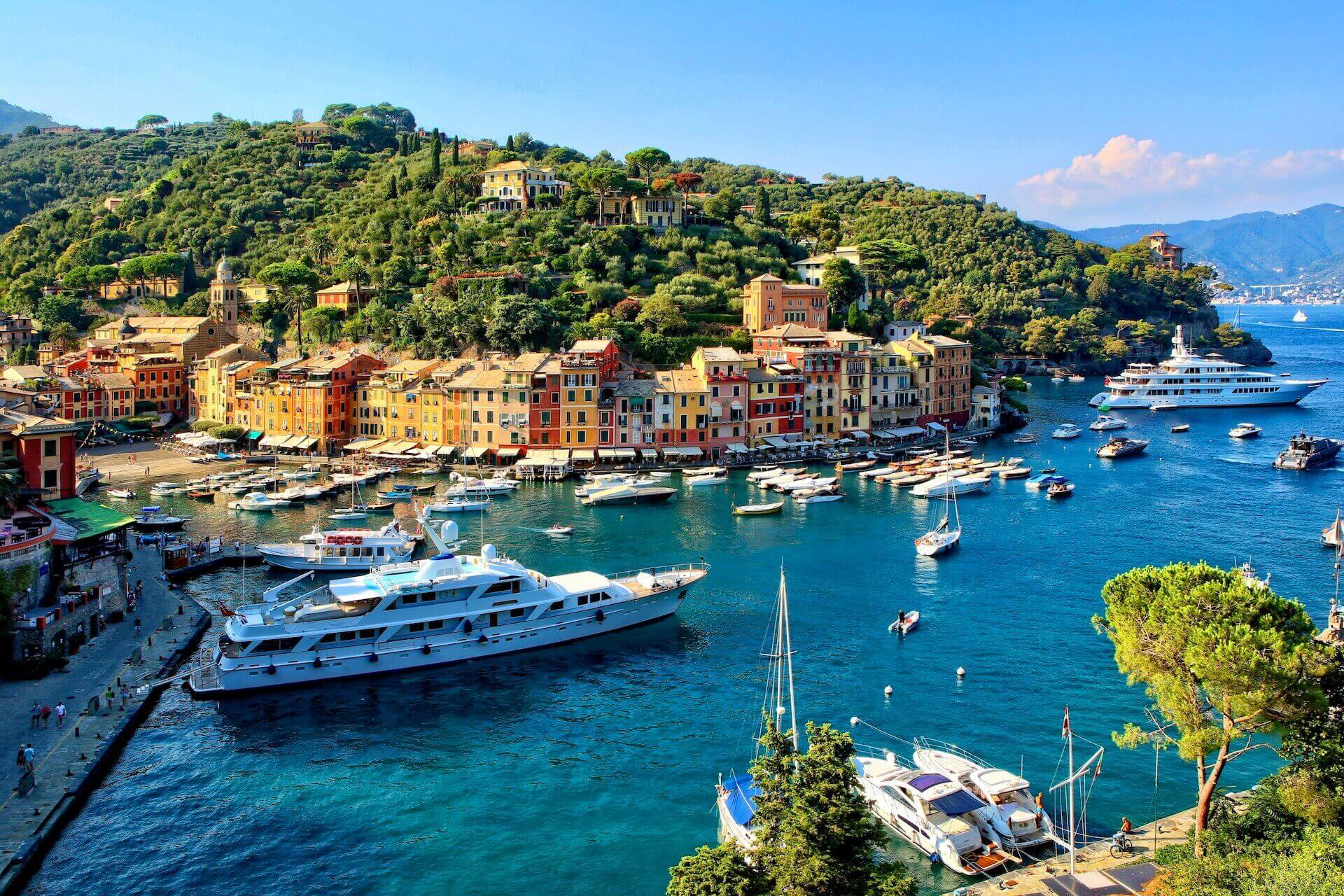
What You Need to Know Before Traveling to Italy for the First Time
Have you ever dreamed of visiting Italy, the land of art, history, and romance? Italy is one of the most popular and beautiful destinations in the world. Yet, it can also be overwhelming and challenging for first-time travelers. There are so many things to see and do, but also so many things to know and prepare. That’s why we have created this ultimate guide on what you need to know before traveling to Italy for the first time.
In this article, you will find practical and useful tips on how to plan and prepare for your trip, such as when to go, where to go, what to do, what to pack, and what to expect. You will also find essential information on the documents, visas, and insurance required for traveling to Italy. Whether you want to explore the ancient wonders of Rome, the romantic canals of Venice, or the artistic treasures of Florence, this guide will help you make the most of your trip and avoid any pitfalls or problems. So sit back, relax, and get ready to discover Italy like never before.
1. How Do I Prepare for My First Trip to Italy?
To prepare for your first trip to Italy, you should first decide when you want to go and your budget. Then, do some preliminary research and preparation. Once you get an idea of the things you would like to do and the cities you want to visit, you can start to plan your trip. Some of the steps you should take are:
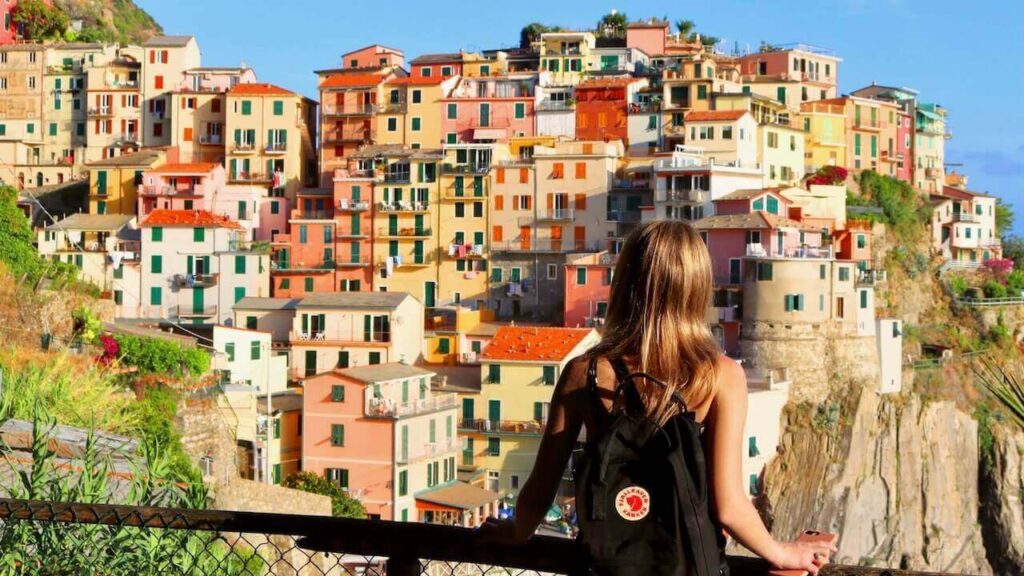
1.1. Pick the Right Season
Italy has different weather and crowds depending on the time of the year. Generally, spring and autumn are the best seasons to visit Italy, as they offer mild temperatures, fewer tourists, and lower prices. On the other hand, summer is the peak season, with hot weather, crowded attractions, and higher prices. Winter is the low season, with cold weather, fewer tourists, and lower prices. However, some places may be closed or have limited hours.
1.2. Book Your Flights and Accommodation
You can use websites like WayAway or Aviasales to compare prices and book flights. Besides that, you can use websites like Booking.com or Agoda to find and book accommodation. You should book as early as possible to get the best deals and availability.
1.3. Buy Tickets and Make Reservations for Major Attractions
Italy has many popular attractions that can sell out weeks or months in advance. You should buy tickets online or at authorized vendors to avoid long lines and scams. Some of the attractions that require tickets or reservations are the Colosseum, the Vatican Museums, the Uffizi Gallery, the Duomo of Florence, and the Last Supper.
1.4. Plan Your Transportation Within Italy
Italy has an extensive and efficient rail network that connects most major cities and towns. You can use websites like Omio or ItaliaRail to compare prices and book train tickets. Also, you can use websites like AutoEurope or Discover Cars to compare prices and book car rentals. Additionally, you can use websites like Omio or Flixbus to compare prices and book bus tickets. You can also use websites like Direct Ferries or AFerry to compare prices and book ferry tickets.
1.5. Pack Your Suitcase and Prepare Your Clothes
You should pick a suitable backpack for the trip and bring only the essentials. Importantly, you should check the weather forecast before you go and pack accordingly. Don’t forget to bring comfortable shoes, layers, a rain jacket or umbrella, sunglasses, sunscreen, a hat, a scarf, and a power adapter. You should also dress appropriately when visiting churches or other religious sites, which means covering your shoulders and knees.
1.6. Get Travel Insurance and Documents Ready
Travel insurance is mandatory if you need a Schengen Visa to enter Italy. However, even if you don’t need a visa, travel insurance is highly recommended, as it can protect you from unexpected costs and risks that may arise during your trip. In particular, it would help if you looking for a travel insurance plan that covers medical expenses, trip cancellation or interruption, baggage loss or delay, personal liability, and travel assistance. You should also ensure that your passport is valid for at least six months after your return date and that you have any other documents required for your trip.
1.6.1. Do I Need Travel Insurance for Italy?
This is surely what you need to know before traveling to Italy, travel insurance is mandatory if you need a Schengen Visa to enter the country. However, even if you don’t need a visa, travel insurance is highly recommended, as it can protect you from unexpected costs and risks that may arise during your trip. For example, travel insurance can cover:
- Medical expenses: If you get sick or injured in Italy, you may have to pay for medical treatment, prescriptions, hospitalization, or repatriation. Travel insurance can reimburse you for these costs up to a certain limit. However, make sure your travel insurance covers COVID-19-related expenses, as some policies may exclude them.
- Trip cancellation or interruption: If you have to cancel or cut short your trip due to unforeseen circumstances, such as illness, injury, death of a family member, natural disaster, or flight cancellation, travel insurance can reimburse you for the non-refundable deposits or fees you have paid for your trip.
- Baggage loss or delay: If your luggage is lost, stolen, damaged, or delayed by the airline or other carrier, travel insurance can reimburse you for the cost of replacing or repairing your belongings or buying essential items.
- Personal liability: If you cause injury or damage to someone else or their property while in Italy, travel insurance can cover the legal expenses or compensation claims that may arise.
- Travel assistance: If you need help or advice during your trip, such as finding a doctor, contacting your embassy, or making alternative arrangements, travel insurance can provide you with 24/7 assistance and support.
Read more: One of the Best International Travel Insurance for Your Trip Safety
2. What Documents Do I Need to Travel in Italy?
This is a vital part that you need to know before traveling to Italy for the first time. The documents you need to travel to Italy depend on your country of origin and the purpose and duration of your trip. If you are a citizen of a country that is part of the Schengen Area or has a visa waiver agreement with Italy, you can enter Italy with a valid passport or identity card for up to 90 days as a tourist, without needing a visa.
However, if you are from a country that requires a visa to enter Italy, you will need to apply for a Schengen Visa at the Italian Embassy or Consulate in your country of residence. You will also need to provide proof of travel insurance that covers at least €30,000 in medical expenses.
If you want to stay in Italy for longer than 90 days or for reasons other than tourism, such as work, study, or family reunification, you will need to apply for a long-term visa and a residence permit. You can find more information about the different types of visas and the documents required on the official website of the Italian Ministry of Foreign Affairs.
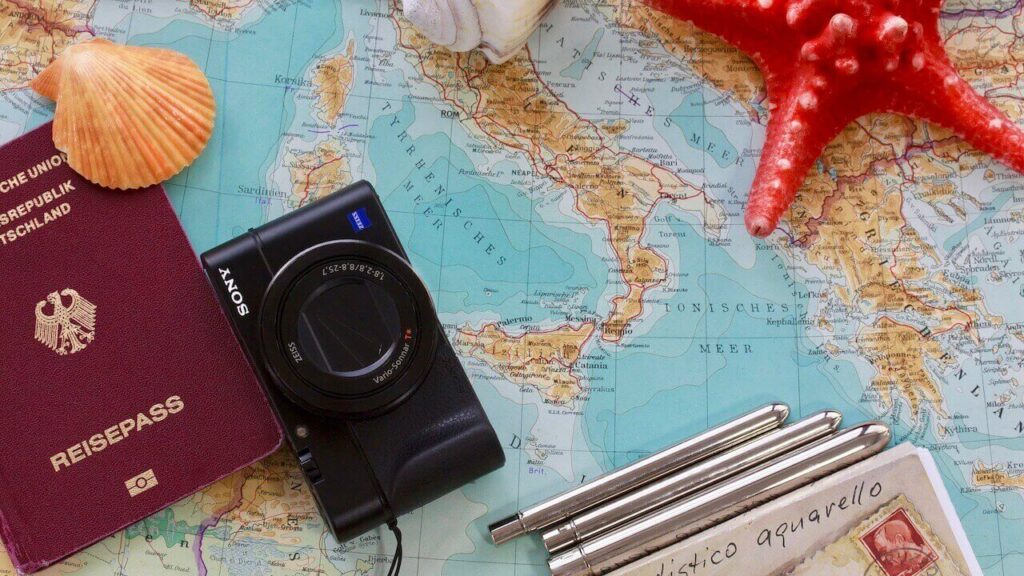
2.1. How Hard is it to Get a Visa to Italy?
It depends on your passport and the length of your stay. If you are from the US, you have a high chance of getting a visa to Italy, as the approval rate is 97.67%. If you are from a non-exempt country, you need to apply for a Schengen Tourist Visa for a stay of up to 90 days, or a national visa for a longer stay. The application process is not hard, but it requires some documents and fees.
2.2. Can I Stay in Italy for 6 Months?
If you are a citizen of a Schengen country or a country that has a visa waiver agreement with Italy, you can stay in Italy for up to 90 days within a 180-day period without a visa. However, if you want to stay longer than 90 days, you will need to apply for a long-term visa and a residence permit. The type of visa and permit you need depends on the reason for your stay. For example, if you want to study in Italy, you will need a student visa and permit; if you want to work in Italy, you will need a work visa and permit; if you want to retire in Italy, you will need an elective residence visa and permit. You can find more information about the different types of visas and permits on the official website of the Italian Ministry of Foreign Affairs.
2.3. Is There an Interview for Italy Visa?
It depends on the type of visa you are applying for and the country you are applying from. If you are applying for a short-stay Schengen visa to Italy, you may be required to attend an in-person interview at the Italian embassy or consulate in your country of residence. The interview is part of the visa application process and aims to verify your identity, travel purpose, and financial means. You will be asked some questions about your trip to Italy, such as where you will stay, what you will do, and how long you will stay. You will also need to present some documents, such as your passport, visa application form, travel insurance, flight reservation, and proof of accommodation.
If you are applying for a long-stay national visa to Italy, such as a student visa or a work visa, you will also need to attend an interview at the Italian embassy or consulate. The interview is similar to the one for the Schengen visa. Nevertheless,
you will also need to provide some additional documents, such as a letter of acceptance from an Italian university or a contract from an Italian employer.
3. How Do You Travel in Italy?
There are many ways to travel in Italy, depending on your budget, preferences, and itinerary. Some of the most common modes of transport are:
3.1. Car
Driving in Italy can be a great way to explore the countryside and smaller towns that may not be well served by public transport. However, driving in Italy can also be challenging, especially if you are not used to the traffic rules, road signs, narrow streets, parking fees, tolls, and speed limits. You will also need an international driving permit (IDP) along with your valid driver’s license if you are from outside the European Union. You can rent a car from various companies at airports, train stations, or city centers. Also, you can use websites like AutoEurope or Discover Cars to compare prices and book cars.
3.1.1. Do I Need International Permit for Italy?
Yes, if you’re visiting, you’ll need to have an International Driving Permit (IDP) along with your legal driving license.
So do I need an IDP even if I’m not planning to drive in Italy? Italian law states that if your license is not from an EU country or European Economic zone, you are required to have an International Driving Permit (legal translation of your driver’s license). If you are not able to produce the IDP while in Italy, you will be fined from €80 to €317.
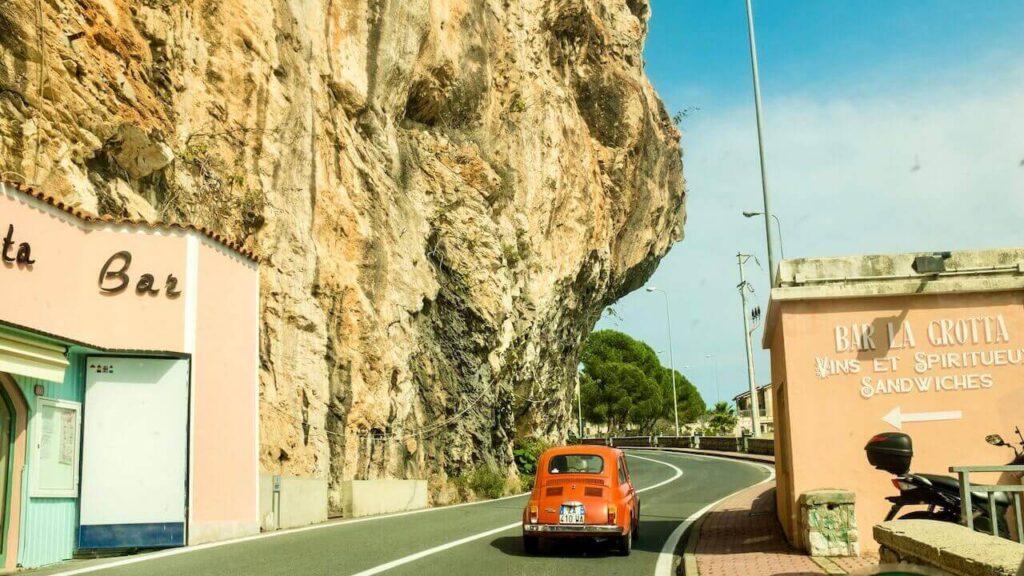
3.2. Train
Italy has an extensive and efficient rail network that connects most major cities and towns. You can choose between:
- High-speed trains (such as Frecciarossa, Frecciargento, and Italo), which are faster but more expensive.
- Regional trains (such as Regionale and Intercity), which are slower but cheaper.
- International trains (such as Eurostar and Thello), which connect Italy with other European countries.
- You can buy train tickets online or at the station, either at the ticket office or at the self-service machines. Also, you can use websites like Omio or ItaliaRail to compare prices and book tickets.
3.3. Bus
Buses are another option to travel within or between cities in Italy. They are usually cheaper than trains but slower and less comfortable. They can also be affected by traffic jams or strikes. You can buy bus tickets online or at the station, either at the ticket office or at the self-service machines. You can also use websites like Omio or Flixbus to compare prices and book tickets.
3.4. Plane
Flying is the fastest way to travel between distant cities in Italy or from Italy to other countries. However, flying is also the most expensive and least eco-friendly option. You will also need to factor in the time and cost of getting to and from the airport. There are several airlines that operate domestic and international flights from Italy, such as Alitalia, Ryanair, EasyJet, Vueling, and Lufthansa. You can use websites like WayAway or Aviasales to compare prices and book flights.
3.5. Ferry
Ferries are a good way to travel between mainland Italy and its islands (such as Sicily, Sardinia, Capri, and Elba) or between Italy and other Mediterranean countries (such as Greece, Croatia, Spain, and Tunisia). Ferries are usually cheaper than planes but slower and more dependent on weather conditions. You can buy ferry tickets online or at the port, either at the ticket office or at the self-service machines. You can also use websites like Direct Ferries or AFerry to compare prices and book tickets.
4. How Much is Needed for 1 Week in Italy?
The cost of a week in Italy depends on various factors, such as the season, the type of accommodation, the activities, and the food. The average cost for a couple to visit Italy for a week is around $2,000-$4,000, excluding flights. Flights can range from $100 to $2,000 per person, depending on the origin and the time of booking. The cheapest month to go to Italy is January.
4.1. Is it Best to Take Cash or Card to Italy?
There is no definitive answer to this question, as it depends on your personal preferences, budget, and travel style. However, it is generally advisable to carry a mix of cash and card when traveling to Italy.
Cash is still widely used and preferred in Italy, especially for small amounts and in rural areas. Some businesses may offer a small discount for cash payments or may not accept cards at all. You can use cash for street food, taxis, tour guides, and purchases under 10 or 20 euros.
Card is also accepted in many places in Italy, especially in urban centers and tourist attractions. You can use your card for hotels, restaurants, shops, museums, and train tickets. Visa and Mastercard are more common than American Express. However, some businesses may charge a surcharge for card payments or may claim that the card reader is out of order. You may also encounter some issues with foreign cards at Italian ATMs. Therefore, it is best to have both options available and use them according to the situation. You should also look for a card that does not charge foreign transaction fees or ATM withdrawal fees when traveling abroad.

4.2. How Much Does Food Cost in Italy?
The cost of food in Italy varies depending on where you eat, what you eat, and how much you eat. A quite interesting info that you need to know before traveling to Italy, some examples of food prices are:
- A meal at an inexpensive restaurant can cost around €14 per person when dining out.
- A meal for two people at a mid-range restaurant with three courses and drinks can cost around €60.
- A McMeal at Mcdonald’s or a similar fast-food chain can cost around €9.
- A cappuccino at a cafe can cost around €1.52.
- A bottle of water (1.5 liters) at a supermarket can cost around €0.42. And a bottle of wine (mid-range) at a supermarket can cost around €5.85.
- A loaf of bread (500g) at a bakery can cost around €1.59.
- A dozen eggs at a grocery store can cost around €3.04.
- A kilogram of apples at a market can cost around €1.78.
4.3. How Much Does Accommodation Cost in Italy?
The cost of accommodation in Italy depends on the type, location, season, and quality of the place you stay. Some examples of accommodation prices are:
- A bed in a hostel dormitory can cost around €25-30 per night.
- A private room on Airbnb can cost around €50-60 per night.
- A double room in a budget hotel can cost around €70-100 per night.
- A double room in a mid-range hotel can cost around €150-200 per night.
- And a double room in a luxury hotel can cost around €300-400 per night or more.
4.4. How Much Does Transportation Cost in Italy?
The cost of transportation in Italy depends on the mode, distance, and frequency of travel. Some examples of transportation costs are:
- A one-way ticket on public transportation (bus, metro, tram) in major cities can cost around €1.50.
- A monthly pass for public transportation in major cities can cost around €35.
- A taxi fare in major cities can start from €5 plus €2 per kilometer.
- A train ticket between major cities can range from €9 to €40 or more depending on the route, speed, and booking time.
- A flight ticket within Italy can range from €50 to €200 or more depending on the route, airline, and booking time.
4.5. How Much Does Entertainment Cost in Italy?
The cost of entertainment in Italy depends on what kind of activities you enjoy and how often you do them. Some examples of entertainment prices are:
- A ticket to a museum or attraction can range from €10 to €20 or more depending on the popularity and location.
- A ticket to a theater or opera can range from €20 to €100 or more depending on the show and seat.
- One ticket to a cinema can cost around €9.
- A pint of beer at a local bar can cost around €5.
- A night out at a club can cost around €10-20 for the entrance fee plus €5-10 for a drink.
5. Where is the Best Place to Go in Italy for the First Time?
Italy has many beautiful places to visit, but some of the best places for first-time visitors are:
5.1. Rome
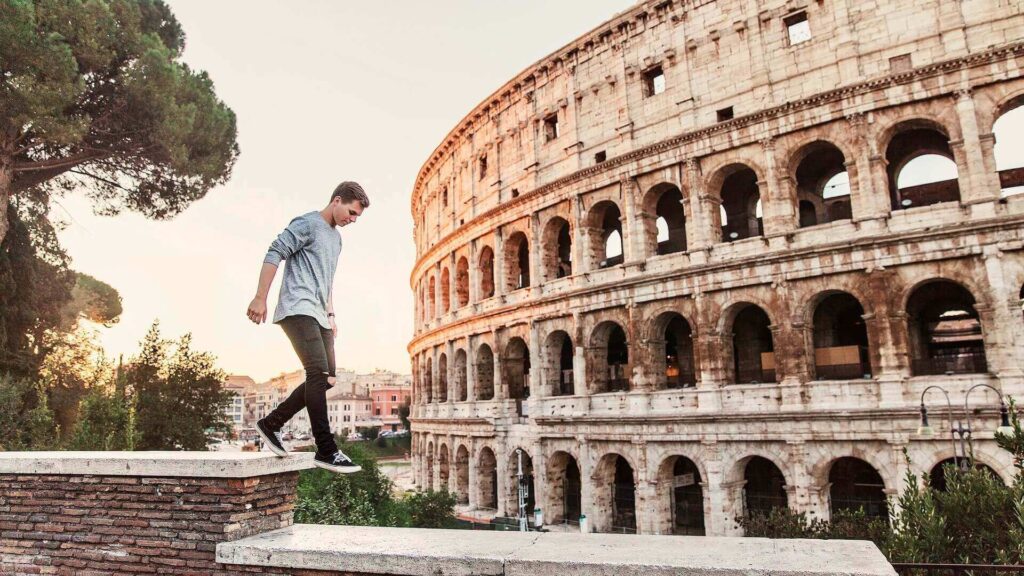
Rome is the capital and the largest city in Italy. Especially, it is also one of the oldest and most historic cities in the world. It has many iconic attractions, such as the Colosseum, the Pantheon, the Trevi Fountain, the Spanish Steps, and the Vatican City. It also has a vibrant culture, lively nightlife, and delicious cuisine. Rome is a must-see for anyone who loves history, art, and culture.
Read more: Best Things to Do in Rome: An Ultimate Guide for Every Visitor
5.2. Venice
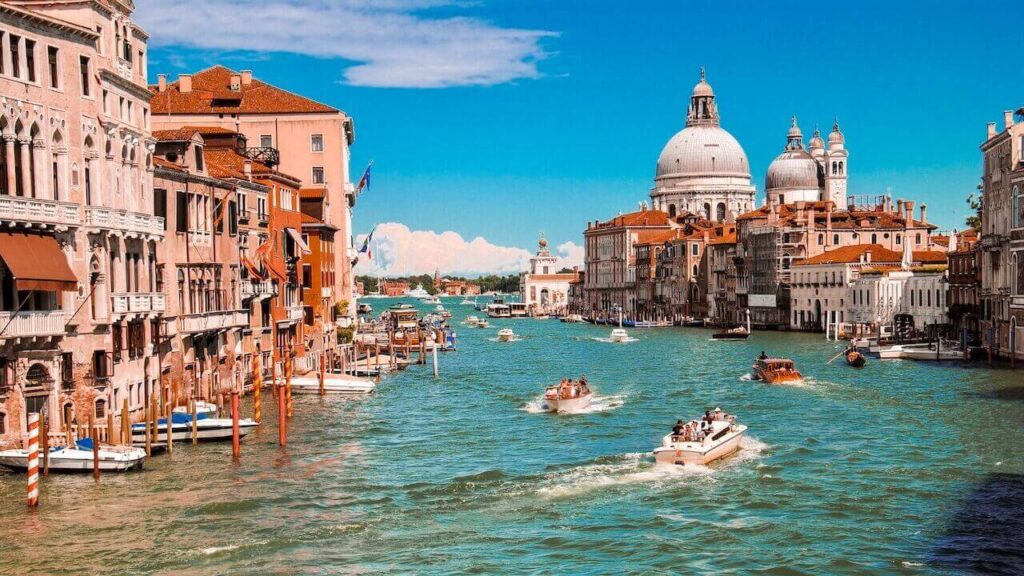
Venice is one of the most unique and romantic cities in the world. It is built on a lagoon and connected by hundreds of canals and bridges. It has many stunning sights, such as St. Mark’s Square, St. Mark’s Basilica, the Doge’s Palace, the Rialto Bridge, and the Grand Canal. Moreover, it has a rich artistic and musical heritage, a charming atmosphere, and a famous carnival. Just in case you need to know before traveling to Italy, Venice is a dream destination for anyone who loves beauty, elegance, and mystery.
5.3. Florence
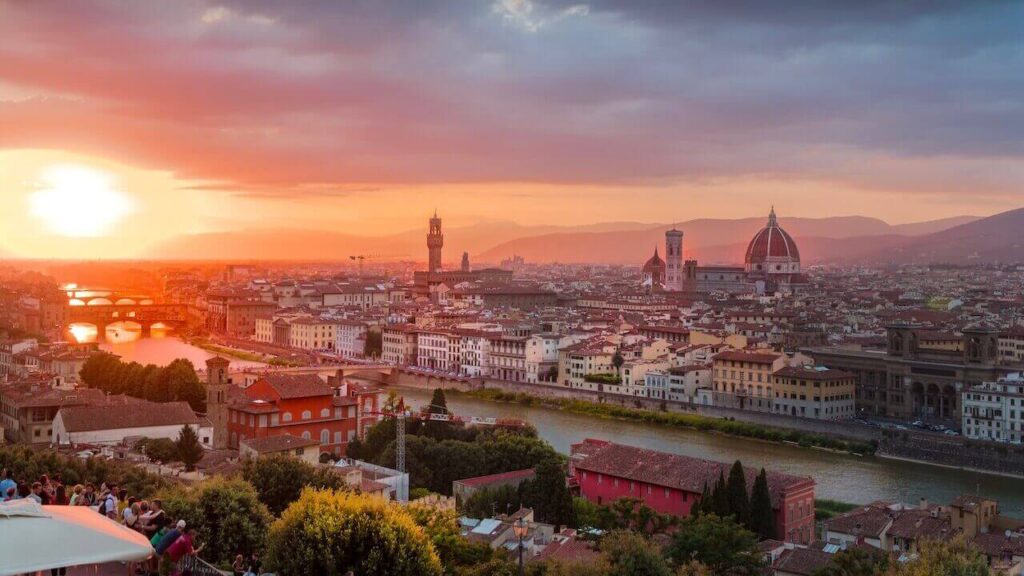
Florence is the capital and the most populous city of Tuscany. Particularly, it is one of the most important and influential cities in the history of art and culture. Indeed, it has many masterpieces of Renaissance art and architecture, such as the Duomo, the Uffizi Gallery, the Ponte Vecchio, and Michelangelo’s David. It also has a scenic location on the Arno River, surrounded by hills and vineyards. Florence is a paradise for anyone who loves art, beauty, and nature.
Read more: Visit Florence: How to Plan Your Perfect Trip to the Birthplace of the Renaissance
5.4. How Long Should Your First Trip to Italy Be?
To have a complete Italy experience, it is recommended to stay for at least ten days. However, if you only have a couple of days, you can still cover many of the main highlights of the country. Most trips begin and end in Rome, where three days are the absolute minimum you need to experience the city. Hot spots like Florence and Venice require at least two full days. You also need to budget for travel time between destinations, either by train or rental car.
6. What to Expect on Your First Trip to Italy?
On your first trip to Italy, you can expect to have a wonderful time exploring the country’s beauty, culture, and cuisine. However, you should also be aware of some of the challenges and differences that you may encounter. Some of the things you need to know before traveling to Italy are:
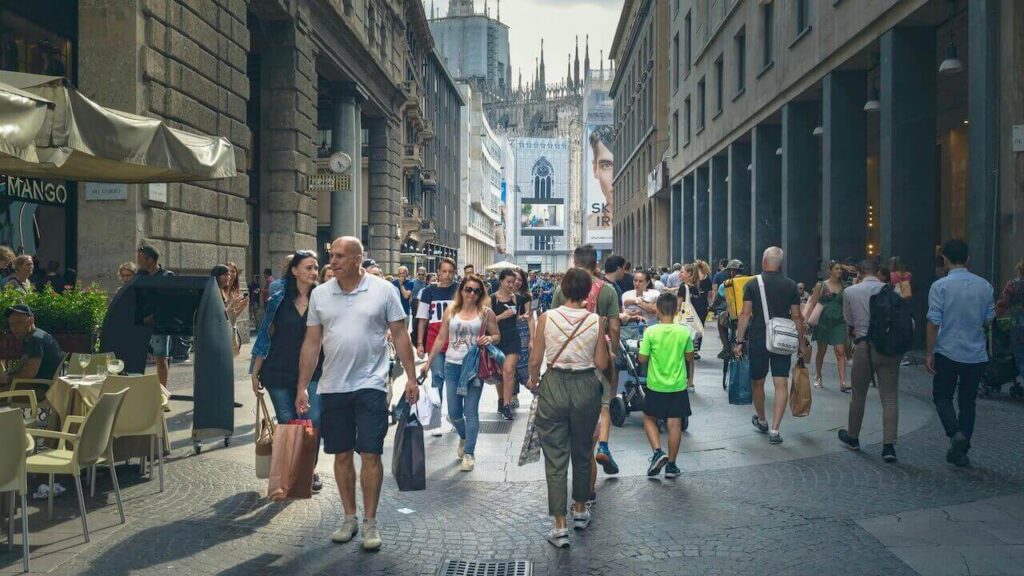
6.1. Language Barrier
Although many Italians speak some English, especially in tourist areas, you may encounter some difficulties communicating with locals who only speak Italian. You should learn some basic phrases in Italian before you go or use a translation app on your phone. You should also be polite and respectful when speaking with Italians and avoid using gestures that may be offensive or misunderstood.
6.2. Food Culture
Italian food is famous all over the world for being delicious and hearty. However, it may also be different from what you are used to. For example, Italians eat breakfast very lightly, usually just a coffee and a pastry; they eat lunch around 1 pm and dinner around 8 pm; they eat pizza with their hands but pasta with a fork; then, they drink wine with meals but not water; they drink coffee after meals but not cappuccino; they tip very little or not at all in restaurants. You should try to adapt to the local food culture as much as possible and enjoy the variety of dishes and flavors that Italy offers.
Read more: Classic Italian Foods: 12 Dishes You Need to Try
6.3. Transportation System
Italy has a good transportation system that allows you to travel easily within or between cities by train, bus, car, or ferry. However, it may also have some drawbacks, such as delays, strikes, traffic jams, tolls, parking fees, or scams. You should be prepared for these inconveniences and plan your trips accordingly. You should also follow the rules and regulations of the transportation system, such as validating your tickets, wearing seat belts, or driving on the right side of the road.
6.4. Tourist Crowds and Scams
This is definitely one of the top things that you need to know before traveling to Italy. Yes, the country is a very popular destination for tourists, which means that some places may be very crowded or expensive, especially in peak season. You should avoid visiting the most popular attractions at peak times or days, such as weekends or holidays. In addition, you should book your tickets and accommodation in advance to secure your spot and save money. You should also be aware of some of the common scams that target tourists. For example, pickpockets, fake tickets, fake guides, fake products, or fake charities. You should be vigilant and cautious when dealing with strangers and keep your valuables safe.
7. How to Make the Most of Your Trip to Italy?
There are many ways to make the most of your trip to Italy, depending on your interests, preferences, and goals. Some general tips that you need to know before traveling to Italy are:
- Plan ahead and book your flights, accommodation, tickets, and reservations in advance to save money and avoid disappointment.
- Choose the best time to visit Italy according to the weather, crowds, and prices. The shoulder seasons of April/May and September/October are usually ideal for enjoying mild temperatures, fewer tourists, and lower costs.
- Explore different regions and cities of Italy and appreciate their diversity and uniqueness. From the Alps to the Amalfi Coast, from Rome to Venice, Italy has something for everyone.
- Learn some basic Italian phrases and words and try to communicate with the locals. Italians are friendly and hospitable people who will appreciate your efforts and make you feel welcome.
- Taste the authentic Italian cuisine and wine and discover the regional specialties and flavors. Italy is famous for its food culture and you will not regret indulging in its delicious dishes and drinks.
- Visit some of the world-renowned attractions and monuments that Italy has to offer, such as the Colosseum, the Vatican, the Duomo, the Uffizi Gallery, and many more. You will be amazed by the history, art, and architecture of this country.
- Enjoy the natural beauty and scenery of Italy and take part in some outdoor activities. You can hike in the mountains, swim in the sea, bike in the countryside, or ski in the winter.
- Immerse yourself in the Italian lifestyle and culture and join in some local events and festivals. You can experience the carnival in Venice, the opera in Verona, the fashion week in Milan, or the Christmas markets in Trento.

7.1. Is It Easy to Tour Italy on Your Own?
It is very realistic and rewarding to plan your own trip to Italy. Many people do it without any problems. You can find plenty of resources online and offline to help you with your itinerary, transportation, accommodation, and activities. You can also enjoy more flexibility and spontaneity when traveling on your own. However, you need to do some research and planning ahead of time, especially if you want to visit popular attractions or destinations that require reservations or tickets.
7.2. Is It Better to See Italy on a Tour or on Your Own?
There is no definitive answer to this question, as it depends on your personal preferences, budget, and travel style. Some advantages of taking a tour are that you don’t have to worry about logistics, transportation, or language barriers; you can benefit from the expertise and guidance of a tour leader; and you can meet other travelers who share your interests. Some disadvantages are that you have less freedom and flexibility; you may have to follow a fixed schedule and itinerary; and you may miss out on some authentic experiences or interactions with locals.
7.3. Can I Go to Italy Without Knowing Italian?
Yes, you can travel in Italy just fine without speaking Italian. You don’t need to learn the language, but it is recommended to memorize at least some key phrases. It will help you in multiple aspects of your trip, from getting around to dining out. There are strategies that you can use to break down the language barriers with the locals and don’t get lost. Also, you have to know the truth about how difficult it is to visit Italy for English speakers.
7.4. Can You Do Italy Without a Car?
Yes, you can visit Italy without a car. Public transportation in Italy is fantastic and well-connected. You can easily get around by train, bus, ferry, taxi, or bike. You can also walk around many cities and towns that are pedestrian-friendly and compact. However, having a car can be useful if you want to explore some remote or rural areas that are not easily accessible by public transport.
What You Need to Know Before Traveling to Italy for the First Time: A Summary
We hope you have enjoyed reading this article and learned a lot from it. Traveling to Italy for the first time can be an amazing and unforgettable experience, but it also requires some preparation and knowledge. Here is a summary of what you need to know before traveling to Italy:
- Pick the right season to visit Italy according to your preferences and budget.
- Book your flights and accommodation in advance to get the best deals and availability.
- Buy tickets and make reservations for major attractions online or at authorized vendors to avoid long lines and scams.
- Plan your transportation within Italy by choosing the best mode of transport for your itinerary and budget.
- Pack your suitcase and prepare your clothes according to the weather, the culture, and the activities.
- Get travel insurance and documents ready according to your country of origin and the length of your stay.
- Expect some language barriers, food culture, transportation system, tourist crowds, and scams in Italy, and learn how to deal with them.
- Visit some of the best places in Italy for first-time travelers, such as Rome, Venice, and Florence.
Now that you know everything you need to know before traveling to Italy for the first time, you are ready to embark on your adventure. Italy awaits you with its beauty, culture, and cuisine. Don’t hesitate any longer and book your trip today. You won’t regret it. Buon viaggio!
Note:
This post contains affiliate links from which I can earn commissions if you use services or buy products from the blog’s partners. If you love the blog, please use the services or buy the products. In that way, you give me support for the blog’s maintenance and development. I appreciate it a lot and thank you for that!
Hey, I Have Travel Planning Resources Here to Help You Easily Plan Your TripEssential Items
Don't forget to bring the Travel Medicines, as well as your necessary Travel Kit. If Your Next Destination Requires a Visa
IVISA will help you with their speed, simple, and secured services with just a minimal chance of being rejected.
Find Your Flight and Transportation to The Destinations
You can read my travel tips to Find Cheap Flights.
You can also use 12Go to book buses, trains, ferries, or any transportation to places.
Book An Accommodation
I mostly use Booking.com to find a place for my trip. Sometimes I try to Get Free Credits on Airbnb to book homestays. Driving Yourself Will be More Enjoyable
You can easily compare prices and find great deals on Discover Cars.
Protect Yourself and Your Trip
Travel Insurance is Important, especially after COVID-19, there are more possible health issues and pandemics. Please don't forget to have a shield for yourself and your trips!
‘PIN IT’ NOW TO SAVE YOUR TIPS ON THINGS YOU NEED TO KNOW BEFORE TRAVELING TO ITALY FOR THE FIRST TIME
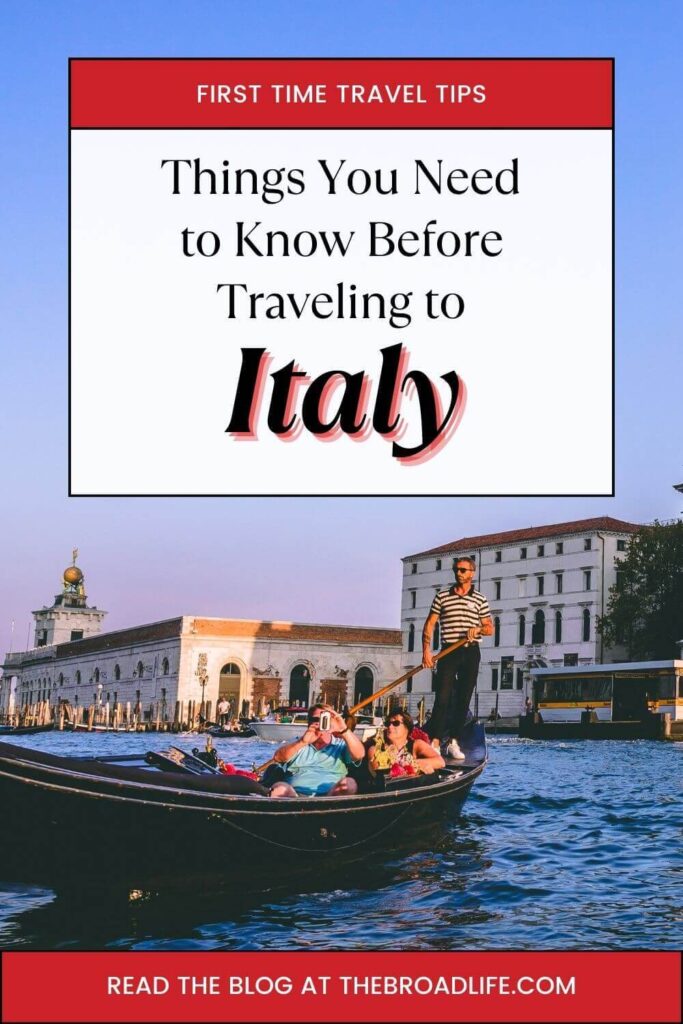
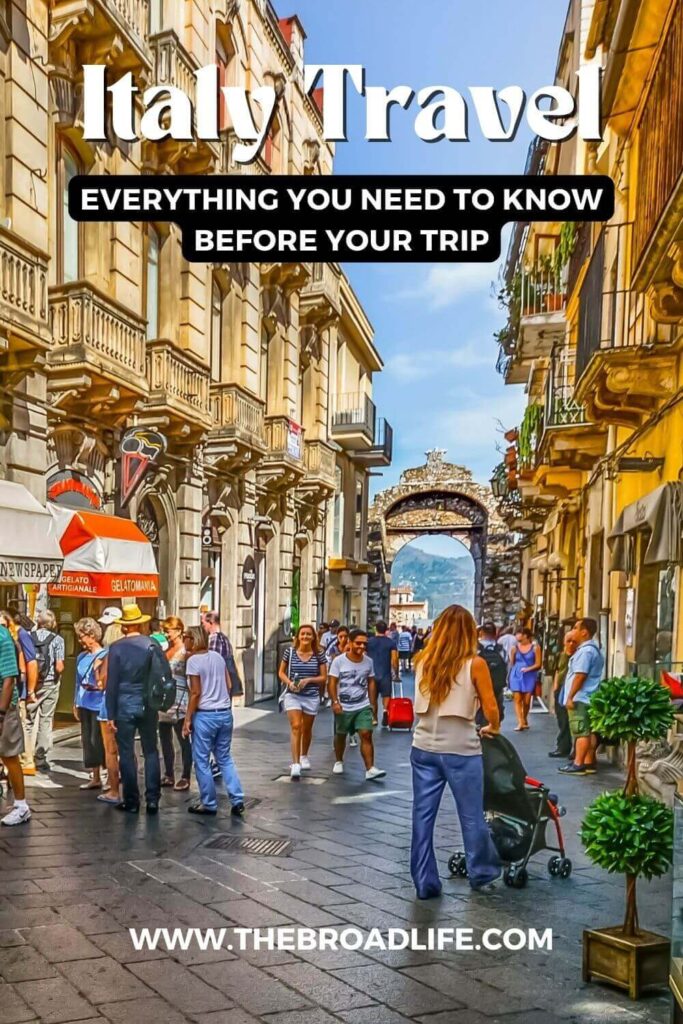
26 Comments
-
-
Rosey
I have been to Rome. I would love to travel to the amalfi coast.
-
Ellanor
I’ve been to Italy a total of four or five times, and it never gets old for me. The train is definitely a great and cheap way to get around, but I advise everyone to account for extra time because of delays, What a fantastic write-up for those travelling to italy for the first time. I think you covered everything!
-
Alita
I would love to travel to italy on my own with these tips in mind! Thank you.
-
Jennifer Prince
I was just there for 2 weeks and loved it! I can’t wait to go back!
-
Kimberley
These are some great tips. I have been to Italy and absolutely loved it. Your tips will help anyone fully prepare for their first trip to Italy. Thanks for sharing.
-
luna s
Awesome tips and information! I will keep this in mind as I would really love to visit Italy sometime in the future. Such a beautiful country!
-
Pedja
very well-written and helpful article for those who plan to visit Italy. Thanks for sharing!
-
Sonia Seivwright
Wow, this guide sounds like an absolute lifesaver for anyone planning their first trip to Italy! As someone who has always dreamt of visiting this beautiful country, I can only imagine how overwhelming it can be to plan and prepare for such a trip. But with this ultimate guide on hand, every aspect of the journey seems covered, from what to do and see to what to pack and expect. I can’t wait to use this resource to make my Italian adventure as smooth and enjoyable as possible!
-
Nikki Wayne
This is a really great and very informative post. Im gonna share this with my friend whos planning to go to italy
-
Melanie E
This is perfect to me as I have yet to visit. Italy is now on my radar. I like to take cash with me for small purchases. Although I will normally have a card on me in case of emergencies.
-
Neely Moldovan
We are going next year so this is super helpful!
-








Richard Lowe
That’s a lot of preparation for a trip! I do want to go to Italy – I like learning about ancient rome.